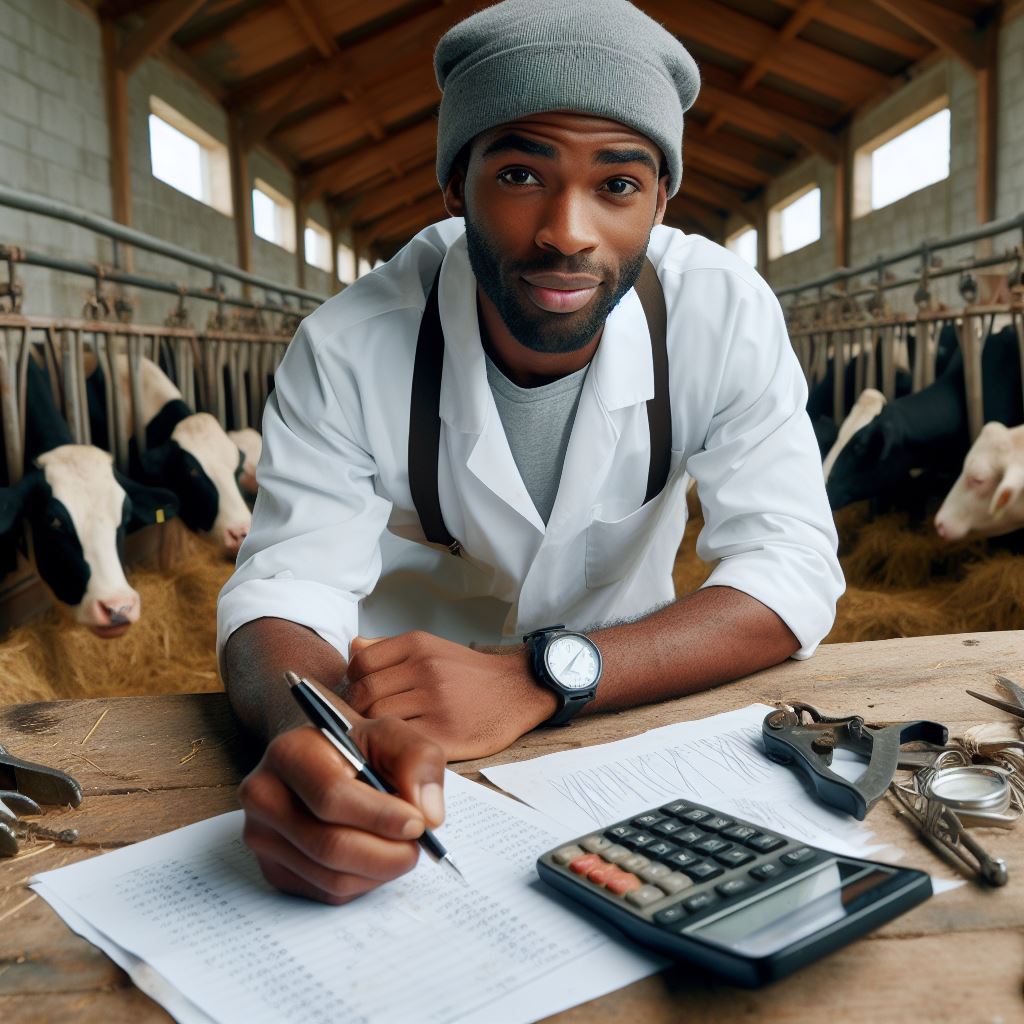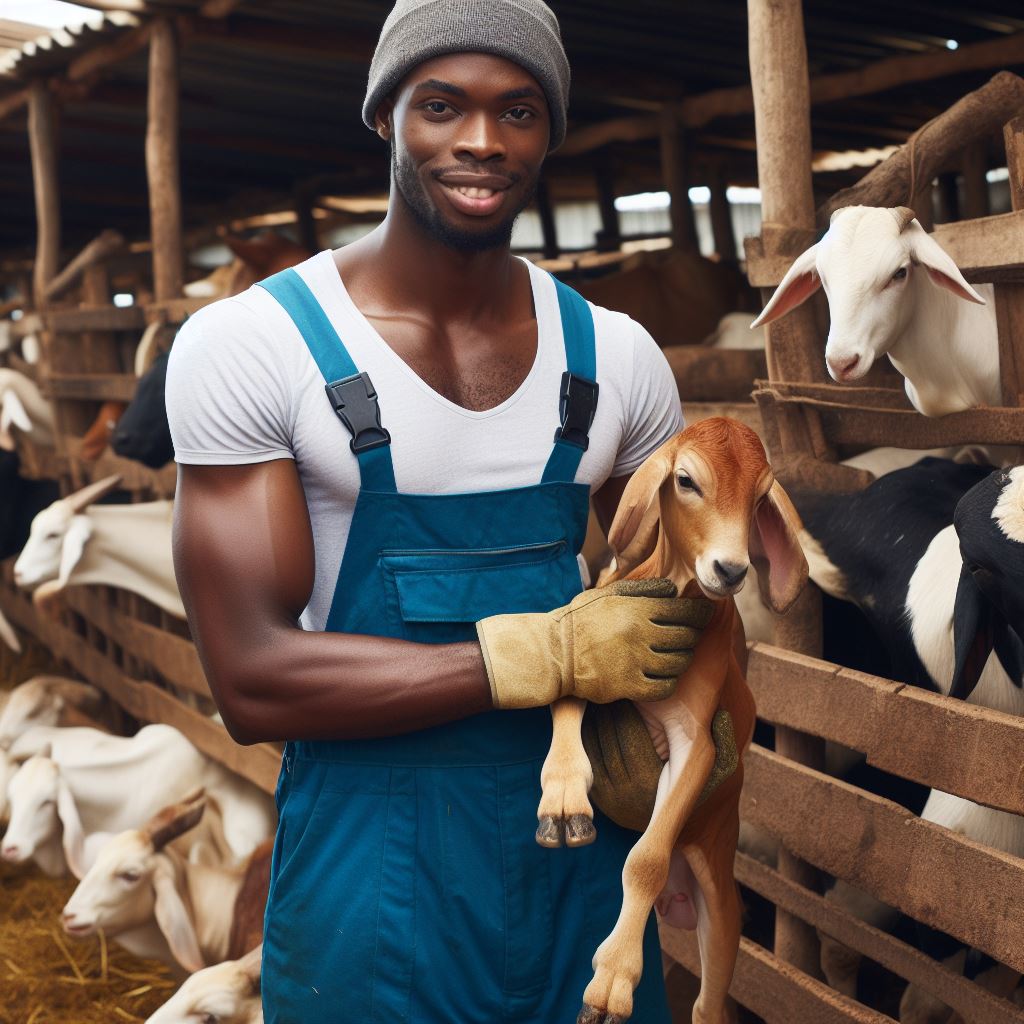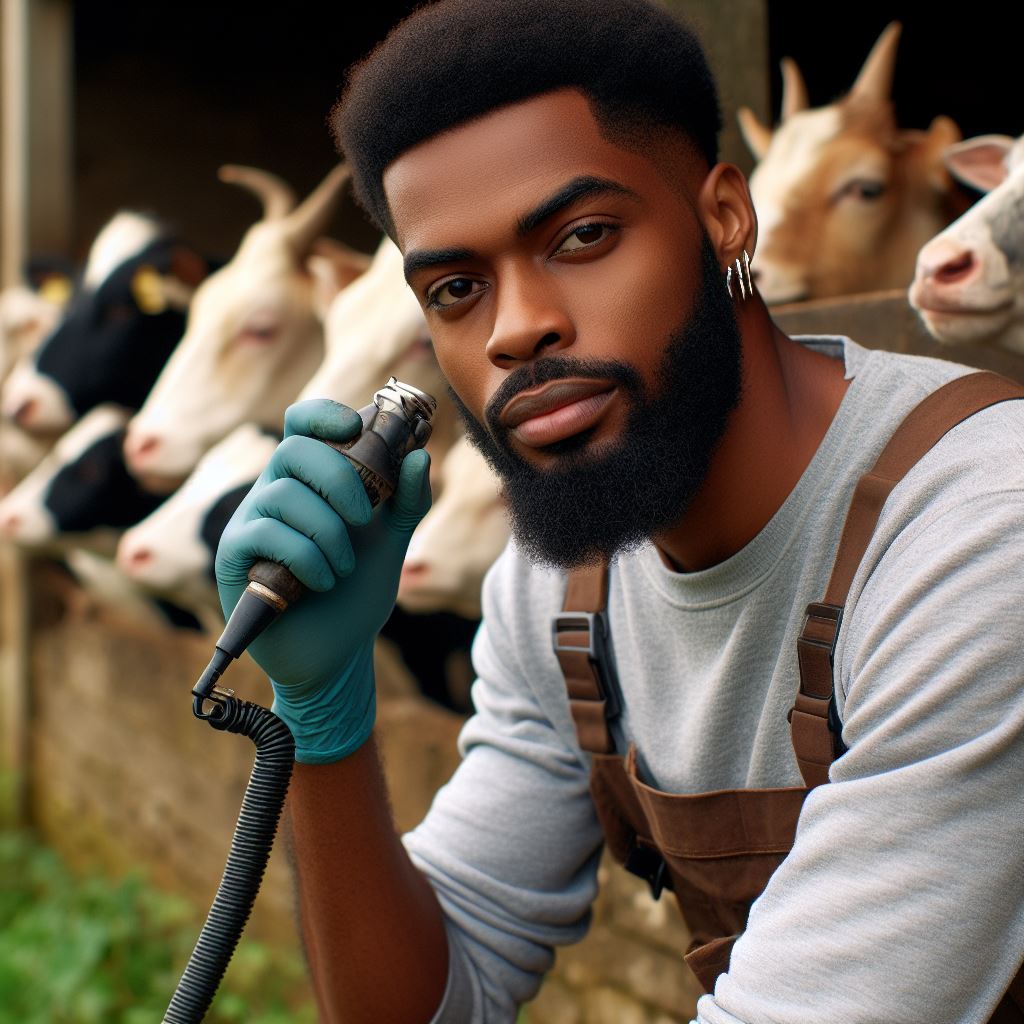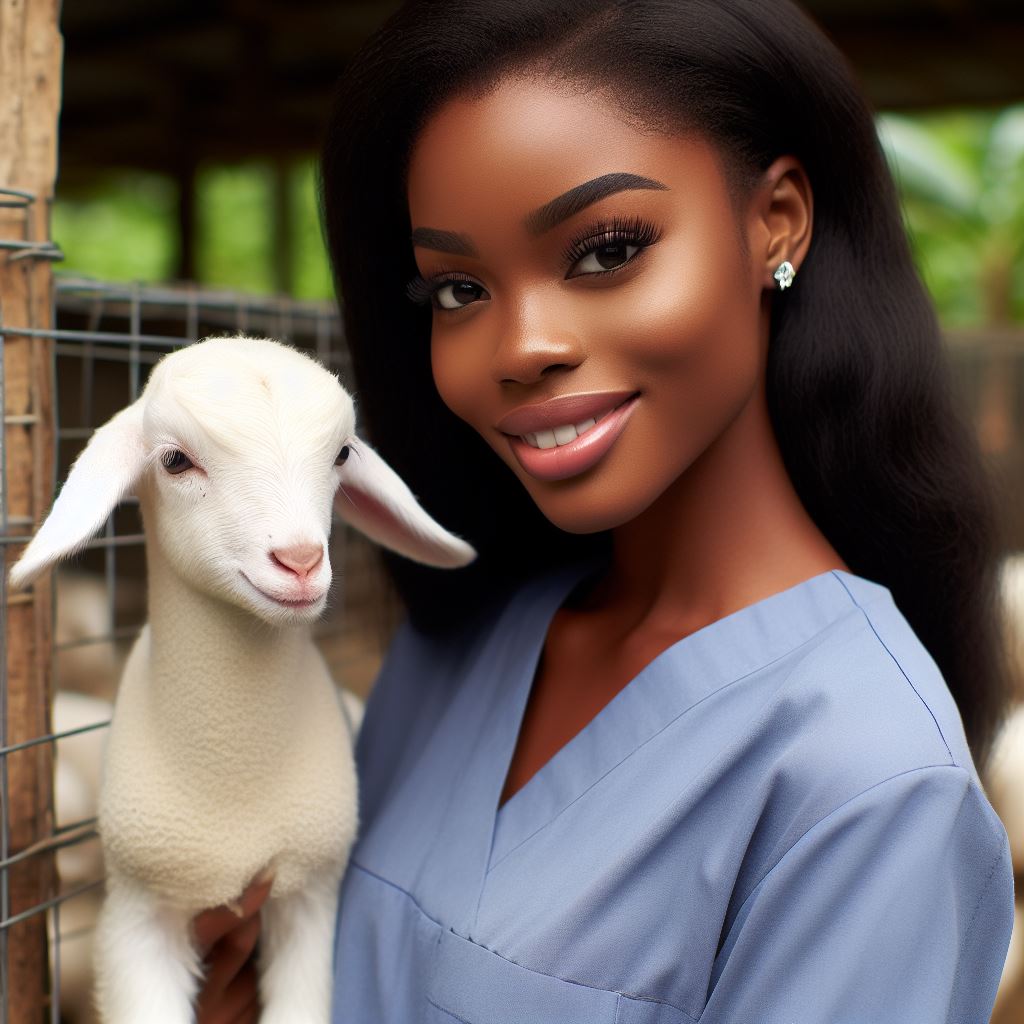Introduction
Nigerian aquaculture graduates are making waves with their remarkable success stories.
These individuals have shown exceptional skills and dedication in the field, proving that they are the future leaders of aquaculture in Nigeria.
From farming fish to developing sustainable aquaculture practices, their achievements are truly extraordinary.
One success story is that of Abigail Ogunwale, a Nigerian aquaculture graduate who started her farm with just a few hundred fish and has now expanded it into a thriving business.
Her innovative techniques and commitment to sustainability have led to increased yields and improved fish health.
Another notable graduate is James Okon, who specializes in breeding rare species of fish.
Through his expertise and dedication, he has successfully bred and introduced several endangered species back into their natural habitats, ensuring their survival for future generations.
These success stories demonstrate the impact these graduates are making in the field of aquaculture.
Their innovative approaches, sustainable practices, and dedication to their work are driving positive change in the industry.
By sharing their stories, we can inspire other aspiring aquaculture professionals and showcase the potential for growth in this sector.
In fact, Nigerian aquaculture graduates are proving that with determination and expertise, they can make a significant impact in their field.
Their success stories serve as an inspiration for others and highlight the immense potential of aquaculture in Nigeria.
As these graduates continue to make waves, we can expect even greater advancements in the field of aquaculture in the years to come.
Overview of Nigerian Aquaculture Education
Aquaculture, the farming of aquatic organisms such as fish, has gained immense significance and experienced remarkable growth in Nigeria.
Over the years, it has emerged as a lucrative industry, providing numerous opportunities for employment and sustainable food production.
The Significance and Growth of Aquaculture Industry in Nigeria
The aquaculture industry in Nigeria has witnessed significant growth due to various factors.
Firstly, the increasing population demands a greater supply of fish and seafood, and aquaculture bridges this gap by providing a sustainable source of protein.
Additionally, Nigeria’s favorable climate and vast water resources make it an ideal location for fish farming.
- Aquaculture allows for increased fish production, reducing the dependence on wild fish stocks and promoting food security.
- It generates employment opportunities, particularly in rural areas where fishing is a traditional occupation.
- Nigerian aquaculture contributes to the nation’s GDP and plays a vital role in economic diversification.
- The industry also fosters foreign investment and export opportunities, further boosting the country’s economy.
Availability of Educational Programs in Aquaculture
Recognizing the importance of developing skilled professionals in the aquaculture sector, Nigeria offers a range of educational programs to equip individuals with knowledge and expertise.
These programs are available at various institutions across the country, including universities, colleges, and vocational training centers.
- Universities such as the University of Ibadan, Federal University of Technology Akure, and University of Agriculture Abeokuta offer aquaculture-related courses at undergraduate and postgraduate levels.
- Colleges like the Federal College of Fisheries and Marine Technology in Lagos provide specialized training in aquaculture.
- Vocational training centers, such as the Nigerian Institute for Oceanography and Marine Research, offer hands-on courses for individuals interested in practical skills.
Skills and Knowledge Gained by Graduates in the Field
Aquaculture graduates in Nigeria acquire comprehensive skills and knowledge that prepare them for successful careers in the industry.
These graduates undergo rigorous training and gain expertise in various areas.
- They learn about fish biology, genetics, and nutrition, enabling them to enhance fish growth and optimize feeding techniques.
- Graduates gain proficiency in water quality management, disease control, and sustainable production practices, ensuring healthy fish populations.
- They develop skills in hatchery management and fish breeding, contributing to the overall growth and reproduction of fish populations.
- Marketing and business management skills are also emphasized, empowering graduates to effectively promote their aquaculture products and manage operations.
Overall, Nigerian aquaculture education plays a crucial role in developing a skilled workforce capable of addressing the growing demand for fish and seafood, both domestically and internationally.
Graduates contribute not only to the industry’s success but also to the sustainable development and economic prosperity of Nigeria as a whole.
Read: Animal Nutrition: A Critical Field for Nigeria’s Agricultural Growth
Success Story 1: Obinna Eze
Brief Background of Obinna Eze
Obinna Eze is a Nigerian aquaculture graduate who has made significant contributions to the industry. He comes from a family with a strong background in agriculture and aquaculture.
Growing up, he developed a deep passion for fish farming and decided to pursue a career in the field.
Achievements and Contributions in the Aquaculture Industry
Since graduating, Obinna Eze has achieved great success in the aquaculture industry.
He started by establishing his own fish farm, which quickly gained recognition for its high-quality products. Eze’s fish farm serves as a model for sustainable and efficient practices.
Eze’s dedication to excellence has led to numerous accolades in the field of aquaculture.
He has been awarded the Best Fish Farmer in the region for three consecutive years, showcasing his commitment to delivering top-notch products to consumers.
Furthermore, Eze actively participates in the development and growth of the aquaculture industry in Nigeria.
He serves as a mentor to aspiring fish farmers and provides them with guidance and support to help them establish successful businesses.
Eze continually emphasizes the importance of innovation and knowledge sharing in the industry.
Innovative Practices and Techniques Implemented
Obinna Eze is known for his implementation of innovative practices and techniques in fish farming. He was one of the first farmers in Nigeria to adopt recirculating aquaculture systems (RAS) in his farm.
This technology helps to conserve water and maintain optimal conditions for fish growth.
Eze also introduced a novel feeding technique that minimizes waste and ensures efficient feeding patterns for his fish.
He developed a customized feed formulation that contains all the necessary nutrients for maximum fish health and growth.
Additionally, Eze has incorporated the use of automated monitoring systems in his farm.
These systems enable him to remotely monitor water quality, temperature, and feeding schedules, ensuring the fish are provided with the best conditions for growth and minimizing potential risks.
Transform Your Career with Expert Guidance
Get personalized mentorship consulting that’s tailored to your unique path. Our expert advice is actionable and exclusive.
Get StartedMoreover, Eze has pioneered sustainable farming methods such as integrated fish farming with agriculture.
He incorporates fish farming with vegetable production, creating a symbiotic relationship where fish waste acts as a nutrient source for the crops, reducing the need for chemical fertilizers.
In short, Obinna Eze’s success story in the Nigerian aquaculture industry is a testament to his passion, hard work, and innovation.
His achievements have not only benefitted his own fish farm but have also positively impacted the industry as a whole.
Eze serves as an inspiration for aspiring aquaculture graduates, demonstrating the potential for success through dedication and implementing cutting-edge techniques.
Read: Scholarship Opportunities for Aquaculture Studies in Nigeria

Success Story 2: Adaobi Nwosu
Brief Background of Adaobi Nwosu
Adaobi Nwosu, a Nigerian aquaculture graduate, has become a prominent figure in the industry.
She hails from a small town in the southern part of the country and grew up with a deep appreciation for nature and the environment.
Inspired by her surroundings, she decided to pursue a career in aquaculture.
Achievements and Contributions in the Aquaculture Industry
Adaobi Nwosu has made remarkable achievements and contributions to the aquaculture industry, solidifying her position as a leading figure.
Her dedication and hard work have earned her numerous accolades and recognition.
Firstly, Nwosu established her own fish farm, which quickly gained attention for its high-quality produce.
Her commitment to sustainable practices and the use of advanced technologies has set a benchmark for others in the field.
Additionally, Nwosu has actively participated in research and development initiatives, collaborating with local universities and international organizations.
Her expertise in breeding and genetics has significantly improved fish farming techniques, leading to higher yields and improved quality.
Nwosu’s tireless efforts have also contributed to the overall growth of the aquaculture sector in Nigeria.
She has been instrumental in organizing training programs and workshops to educate aspiring aquaculture professionals.
Through these initiatives, she has played a pivotal role in empowering and inspiring the next generation of aquaculturists.
Moreover, Adaobi Nwosu has been a vocal advocate for sustainable aquaculture practices. She has actively campaigned for proper waste management and the use of eco-friendly techniques.
Her efforts have raised awareness about the importance of preserving the environment while maximizing production.
Unique Approaches or Solutions Implemented
One of the unique approaches implemented by Adaobi Nwosu is the integration of digital technology into fish farming.
Recognizing the potential of automation, she introduced sensors and monitoring devices to optimize feeding schedules and water quality control.
This innovation has not only improved efficiency but also reduced costs and environmental impacts.
Furthermore, Nwosu has pioneered the use of vertical farming systems in aquaculture. By utilizing limited space and maximizing production vertically, she has revolutionized fish farming in urban areas.
This approach has opened up new possibilities for sustainable food production and reduced the strain on land resources.
Additionally, Nwosu has encouraged the adoption of collaborative farming models. She believes that partnerships among fish farmers can lead to increased market access and shared resources.
By promoting cooperative ventures, she has helped small-scale farmers overcome challenges and improve their profitability.
Basically, Adaobi Nwosu’s remarkable journey in the aquaculture industry serves as an inspiration to many aspiring professionals.
Her achievements, contributions, and unique approaches have propelled the sector forward and have created a positive impact on sustainable fish farming in Nigeria.
Through her leadership and dedication, Nwosu continues to make waves in the industry, paving the way for a thriving future.
Read: Innovative Research & Development in Nigerian Animal Nutrition
Success Story 3: Chinedu Okoro
Brief Background of Chinedu Okoro
- Chinedu Okoro is a Nigerian graduate who pursued a degree in aquaculture.
- He comes from a small village in Eastern Nigeria and had a humble upbringing.
- Chinedu always had a passion for fish farming and decided to pursue it as a career.
Achievements and Contributions in the Aquaculture Industry
- After completing his studies, Chinedu Okoro established his own fish farm called “Okoro Aquaculture.”
- His farm quickly gained recognition for its high-quality fish and efficient farming practices.
- Chinedu implemented innovative techniques such as using recirculating aquaculture systems to minimize water wastage.
- He also introduced sustainable feeding practices, reducing the environmental impact of fish farming.
- Chinedu’s farm became a model for other aspiring fish farmers in Nigeria, inspiring them to adopt modern and sustainable methods.
- His success story motivated the local community to embrace aquaculture as a viable means of livelihood.
Overcoming Challenges and Innovative Methods Employed
- Chinedu faced numerous challenges when starting his fish farm, including lack of financial resources and limited access to modern technologies.
- However, he didn’t let these obstacles deter him and instead found creative solutions.
- Chinedu approached local NGOs and government agencies, seeking funding and technical assistance.
- Through networking and perseverance, he managed to secure the necessary funds to purchase essential equipment.
- Understanding the value of collaboration, Chinedu formed partnerships with other fish farmers to share knowledge and resources.
- He also leveraged social media platforms to market his farm and attract potential customers.
- Chinedu’s innovative methods and determination contributed to the growth and success of his fish farm.
Overall, Chinedu Okoro’s journey in the aquaculture industry is a true testament to the power of passion and resilience.
Despite the challenges he faced, he managed to overcome them through innovative thinking and collaboration.
His achievements not only transformed his own life but also inspired others in the community to pursue aquaculture as a viable and sustainable career option.
Chinedu’s success story serves as a beacon of hope for aspiring aquaculture graduates in Nigeria and beyond.
Read: Top Universities in Nigeria Offering Animal Science Courses
Impact of Nigerian Aquaculture Graduates
Overall Impact on the Aquaculture Industry in Nigeria
- Nigerian aquaculture graduates have had a significant impact on the development and growth of the industry.
- They have brought in new skills, knowledge, and ideas that have transformed the sector.
- Graduates have introduced modern and innovative techniques, leading to increased productivity and efficiency.
- Their expertise has helped in establishing sustainable aquaculture practices, ensuring the long-term viability of the industry.
- The graduates have also played a crucial role in improving the quality of aquaculture products, meeting both domestic and international market demands.
- With their technical skills, graduates have contributed to the expansion of aquaculture facilities across the country.
- They have helped in setting up and managing fish farms, hatcheries, and feed production units, creating employment opportunities.
Success Stories as Motivation for Aspiring Aquaculture Students
- The success stories of Nigerian aquaculture graduates serve as a source of inspiration for aspiring students.
- These stories highlight the potential for personal growth and career advancement in the aquaculture industry.
- Graduates have demonstrated that with the right education and training, one can achieve success.
- Their achievements motivate aspiring students to pursue aquaculture as a career choice, knowing that they can make a significant impact.
- The success stories challenge the traditional mindset and perception of career options, encouraging more students to consider aquaculture.
- Graduates have shown that aquaculture offers rewarding and lucrative opportunities, ensuring a stable future.
Potential for Growth and Development in the Sector with Skilled Graduates
- Skilled aquaculture graduates have the potential to drive the growth and development of the sector.
- Their technical expertise is essential for overcoming challenges and maximizing the sector’s potential.
- With skilled graduates, Nigeria can improve its aquaculture production and become self-sufficient in meeting its seafood demands.
- Graduates can contribute to the commercialization of aquaculture, attracting investments and boosting economic growth.
- The sector can benefit from graduates’ knowledge in adopting modern technology and best practices.
- Skilled graduates can also identify new market opportunities and develop sustainable aquaculture value chains.
- The presence of trained and skilled professionals enhances the sector’s credibility and reputation, attracting more stakeholders.
- With the potential for growth and development, there is a need for continuous investment in aquaculture education and training.
Essentially, Nigerian aquaculture graduates have made a significant impact on the industry. Their expertise, success stories, and potential for growth highlight the importance of skilled professionals.
By recognizing their contributions and supporting their development, the aquaculture sector can continue to thrive, contribute to economic growth, and provide sustainable seafood production for Nigeria.
Conclusion
The success stories of Nigerian aquaculture graduates mentioned in this blog post serve as inspiration for aspiring professionals in the field.
These graduates have made significant contributions to the aquaculture industry in Nigeria, demonstrating their expertise and impact.
We encourage readers to explore the vast opportunities in aquaculture education and pursue fulfilling careers in this thriving sector in Nigeria.




